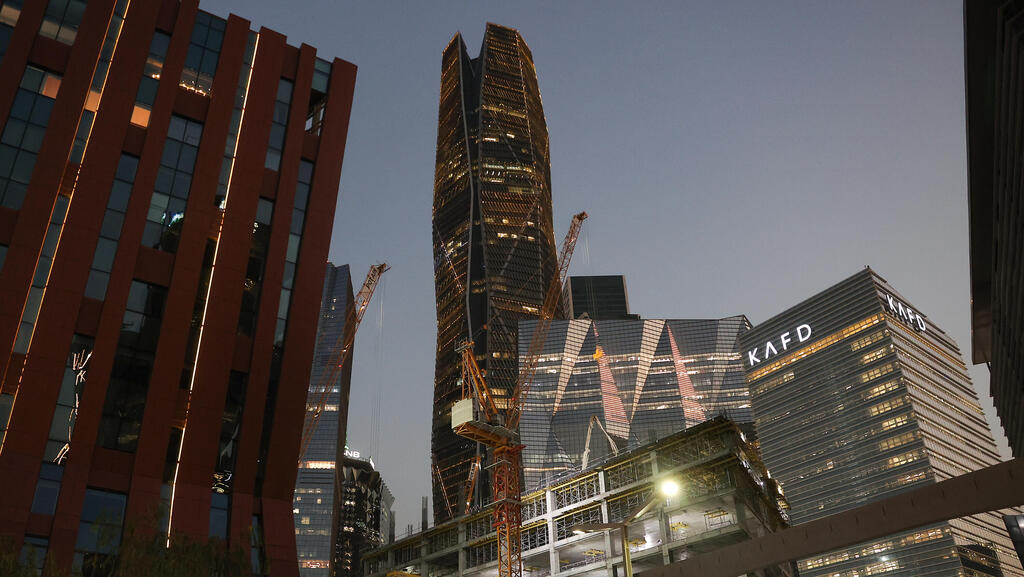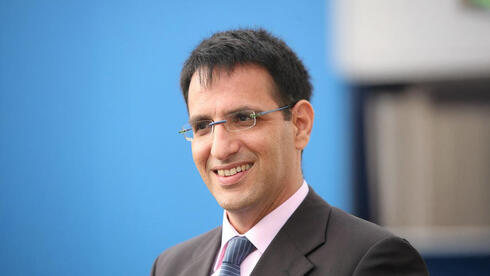
How an Israeli desalination giant quietly broke into the Arab world
For years, Israeli water technology reached boycotting countries through a Swiss front company, a hidden arrangement now at the center of an international arbitration dispute.
The water desalination company IDE, managed by Avshalom Felber, has spent the past decade working to circumvent the boycott of Israeli companies by Arab and Muslim countries such as Saudi Arabia, Pakistan, and Kuwait - nations with which Israel has no official diplomatic relations - by operating through a Swiss-owned “front company.” This company participated in public tenders and obscured the Israeli identity of the technology’s owners and actual project operators, according to information obtained by Calcalist.
Against the backdrop of these activities, which generated revenues of tens of millions of dollars for each project, a dispute recently erupted between IDE and the Swiss company Swiss Water (SW), which allegedly served as the entity concealing IDE’s involvement in the projects. The disagreement led to mutual claims filed by both parties before the UK’s Commercial Court and Arbitration.
IDE provides water treatment solutions, including the development, engineering, construction, and operation of desalination plants. Until 2019, Delek Group owned 50% of the company’s shares, which were later sold in two installments to Alpha Water, a limited partnership managed by Felber, in a deal that valued IDE at $406 million.
Roughly 50% of the global water desalination market, as Delek previously reported to the stock exchange, is concentrated in the Middle East and North Africa (MENA) region. Given that many countries in these areas have no diplomatic relations with Israel, and some even maintain formal economic boycotts, IDE is effectively barred from capturing a significant share of this key market.
According to the Swiss company and information reviewed by Calcalist, IDE found a way to bypass these restrictions by using a “front company” (also referred to as a white-label structure). The Swiss company claims that the driving force behind the idea and creation of this model was Felber himself.
The parties defined a list of “prohibited countries” in which SW would operate under its agreements with IDE in order to access local tenders. The list included Qatar, Kuwait, Saudi Arabia, Yemen, Libya, Algeria, Tunisia, Afghanistan, and Pakistan. Initially, it also covered nations that, prior to the Abraham Accords, lacked diplomatic relations with Israel, among them the United Arab Emirates, Bahrain, Sudan, Oman, and Morocco.
Related articles:
According to the Swiss company, the method worked as follows: Felber, together with Swiss businessmen, established a network of legal entities through which he ultimately held indirect rights. In tenders and contracts with “prohibited countries”, those defined by IDE as states unwilling to engage in business with Israeli firms, Swiss Water competed alone, without the clients knowing about the Israeli connection.
Through this arrangement, Swiss Water signed several contracts worth tens of millions of dollars per project in the prohibited countries, while IDE provided the technology and executed the projects. Among these were the “Red Sea” project in Saudi Arabia, one of the largest in the Middle East, the “Greater Arabian Sea” project in Pakistan, two projects in Kuwait, and two in Oman completed prior to the Abraham Accords, which were only signed in 2020.
A statement on behalf of IDE and Avshalom Felber read:
“Like many Israeli multinational companies, IDE operates in international markets according to the strictest standards. Regarding the dispute with the Swiss company, this is a business disagreement currently under arbitration in England, after IDE filed a lawsuit against it. We will deviate from our usual practice and note that this is a company on the verge of insolvency, which, as an invalid strategy, filed a counterclaim. The claims made in the Swiss company’s lawsuit are entirely false and are designed solely to exert improper pressure in order to obtain funds to which they are not entitled. In addition, it should be noted that, as far as we know, vested interests in Israel are cooperating with the Swiss side, including financing of the lawsuit by More Investment House, all with the aim of sabotaging IDE’s chances of winning desalination tenders.”
A statement on behalf of the Swiss company, provided through its lawyers Gideon Even-Or of the AYR law firm and Yossi Ha’Ezrachi of the Yossi Ha’Ezrachi law firm, read:
“It is strange that the first thing IDE chose to do after receiving our arbitration notice was to run the case through the press. Given IDE’s conduct, which has trampled on our client’s rights, we will continue to assert our claims before the proper authorities, not through the media.”

